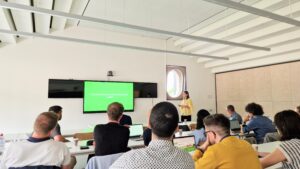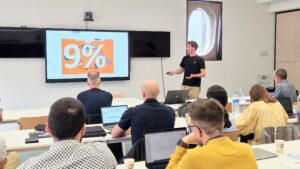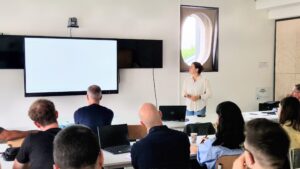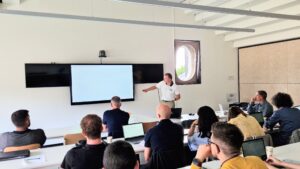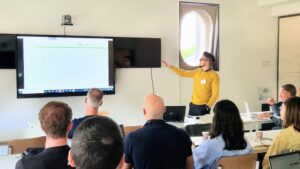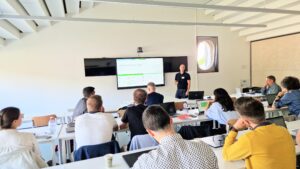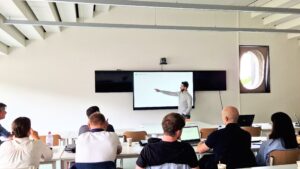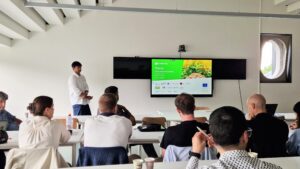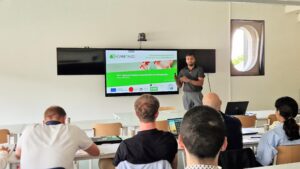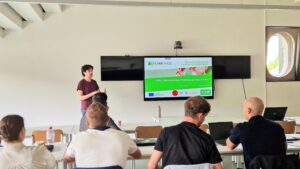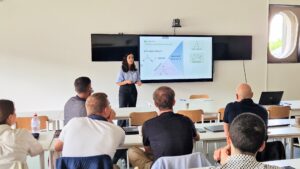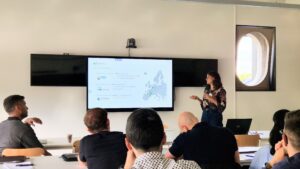From 8 to 12 September 2025, the University of Liège hosted the D-Carbonize School, a week-long event dedicated to share advances in CO₂-based technologies, sustainable polymers, flow chemistry and recycling innovations. Organized by the D-Carbonize project, this programme brought together doctoral candidates, researchers and industry experts to explore innovative solutions for a circular carbon economy.
During the first two days, the event centered on internal sessions for project members only. On Monday, the D-Carbonize doctoral candidates gave scientific presentations sharing their research findings during the last couple of months. The following day continued with a Supervisory Board meeting and a hands-on workshop on designing flow reactor components using 3D printing. This session provided practical insights into combining flow chemistry with additive manufacturing techniques.
The public sessions of the D-Carbonize School, which brought together project members and around 50 external researchers, were held on Wednesday and Thursday and focused on carbon dioxide and biobased chemistries for producing greener polymers and organics.
- Natalia Kulbacka
- Enrico Lanaro
- Lilas Aubel
- Florian Barbaz
- Angelo Scopano
- Giovanni Berlutti
- Hussein Tabaja
- Nishant Chaundry
- Owais Sheikh
- Elia Cecchetto
- Hanieh Moradi
- Sara Faoro
Experts shared strategies for sustainable polymer design, including degradable vinyl polymers, recyclable thermoset networks, and CO₂-based polyurethanes. Discussions also covered biobased chemistry, advanced-flow reactors, catalytic systems for CO₂ valorisation, and catalytic biomass upgrading. In addition, the importance of Life Cycle Assessment (LCA) was emphasized, while industry representatives showcased practical solutions such as converting CO₂ waste streams into polyesters to benefit a circular economy.
The D-Carbonize School concluded on Friday with a session dedicated to essential soft skills for industry. These broad personal growth trainings were not limited to the final day, as throughout the week participants took part in workshops on scientific writing, preparing competitive CVs and grant applications, and exploring the role of artificial intelligence in sustainable chemistry. These sessions complemented the technical discussions and provided valuable tools for personal career development.

This project has received funding from the European Union (Marie Sklodowska-Curie Grant Agreement No 101073223)
